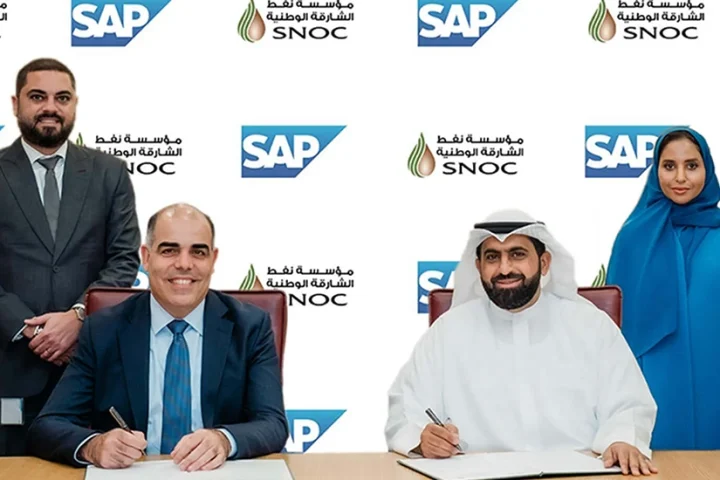Some organisations in the region had already embarked on their transformation journeys and the pandemic demonstrated how critical it is to transform.
The IT industry performed a vital role in helping governments, businesses and society in general to continue functioning as normally as possible during the challenging and unexpected events of 2020, and it is a credit to the IT industry that many people believe these new working practices are here to stay. Many organisations in the region had already embarked on their digital transformation journeys and COVID-19 demonstrated just how critical it is for organisations to transform.
Organisations that adopted a cloud-first approach had greater agility to respond to the sudden changes that we experienced in 2020. They were able to scale their IT capacity up or down quickly and easily, and they were better positioned to provide their employees with flexible, secure, remote working opportunities. They were also better placed to launch modern applications to engage with customers and tap new opportunities, even during the most challenging of times.
VMware experienced growth in the Middle East, Turkey and North Africa region in 2020. One of VMware’s key successes in 2020 was to establish a new office in Cairo, which is helping to expand the company’s presence in North Africa. The facility already has about 150 staff who are helping the country drive digital transformation across a range of sectors, including government, telco, education, healthcare, and industry, in line with the Egyptian government’s ambitious Vision 2030 agenda.
VMware also deepened its ties with academic institutions in the region to help boost ICT skills among young people. In late 2019, VMware and Egypt’s National Telecommunication Institute signed an agreement to establish NTI as the VMware IT Academy regional lead for the Middle East and Africa. The initiative is now helping to train the next generation of ICT instructors and university students, helping organisations in Egypt digitally transform and embrace a future based on a cloud-ready infrastructure approach.
VMware also helped key sectors such as healthcare and education respond to the challenges presented by COVID-19. For example, the American Hospital Dubai, a premier private healthcare provider in the Middle East, deployed a digital platform that enabled it to transform a hotel into an operational, 390-bed field hospital for COVID-19 patients, including secure access to the main hospital IT services.
Like every organisation, VMware and its employees had to adapt its working practices to the new normal. While we already had the technology and flexible working policies in place to make the transition, there was still a period of learning as everyone became accustomed to working away from the office. The senior team also had to adapt quickly to working with customer through a combination of flexible and face-to-face meetings. The team learned a lot and is now well placed to move into 2021 with a distributed working model.
In the METNA region, VMware saw significant growth of solutions that enable distributed working practices. As mentioned, there was strong demand for WorkSpace One, which enables organisations to manage a distributed workforce securely and effectively.
The solution integrates access control, application management and multi-platform endpoint management into a single platform and is available as a cloud service or on-premises deployment, which has helped organisations gain the business continuity they required amid the global pandemic.
There was also strong demand for cloud-ready network solutions which enable organisations to seamlessly increase or reduce their network and compute capacity. This proved invaluable in the case of healthcare providers looking to establish emergency wards to cope with potential rises in patient numbers during the pandemic.
The key lesson from 2020 was to expect the unexpected and be prepared for all eventualities. Of course, some verticals have been hit much harder than others by COVID-19, but what is common across almost all sectors is that by embracing cloud and cloud-ready solutions, organisations gain a huge amount of flexibility and efficiency.
Organisations that adopt a digital foundation with consistent infrastructure and operations across all types of cloud, whether public, private or hybrid, will be able to accelerate their pace of innovation by developing new modern apps and modernising existing apps and infrastructure to launch new services and serve customers better.
Another big lesson in 2020 relates to the workforce. One of the main impacts of the pandemic was to push millions of people to work from home. It was a steep learning curve for many organisations and individuals, with concerns around security, access to systems and data, management oversight, and productivity.
The future workforce is an area of expertise for VMware and we commissioned research on the subject to gain insights into the impact of this dramatic move towards distributed workforces globally, and the findings were fascinating. Indeed, in the UAE the research revealed a 48% increase in the proportion of employees who see remote working as a prerequisite rather than a perk.
Furthermore, 62% of UAE respondents recognise that their organisation is realising the benefits of remote work and cannot go back to the way they used to be. Despite this, there is a concern that company leadership and management are not putting in the work to adapt in offering their employees greater choice and flexibility.
For example, 43% of decision makers in UAE worry their team will not stay on task when working remotely, and almost a quarter 24% feel their boardroom culture discourages remote working. Meanwhile, 65% feel more pressure to be online outside of normal working hours.
All this tells us that company directors and management teams need to look carefully at their remote and flexible working policies to ensure their distributed workforce is happy, content and productive, and that the policies put in place work in everyone’s favour.

























